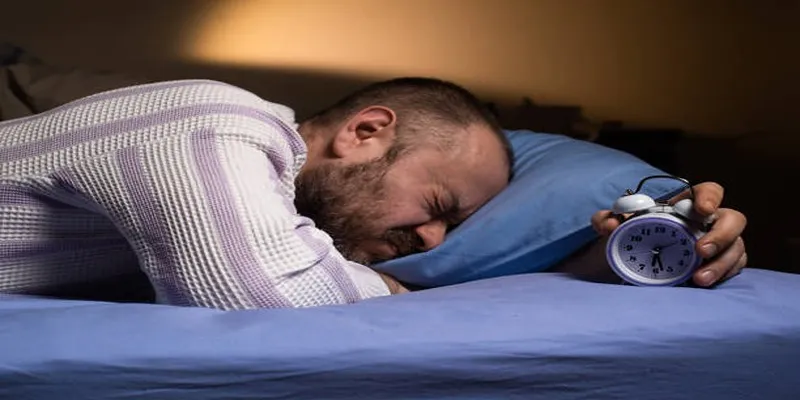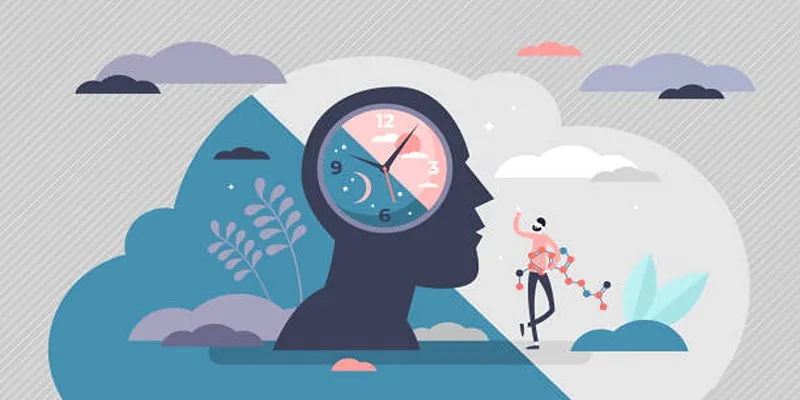The Science Behind Sleep Drive and Body Clocks Explained
Sleep plays a vital role in our daily lives, affecting how we feel, think, and function. Two key factors, sleep drive and your body clock, work together to determine when you feel tired and when you wake up. Sleep drive builds up throughout the day, pushing you to rest, while your body clock regulates your natural sleep-wake cycle. Understanding these processes can help you improve your sleep habits and overall health, making it easier to stay energized and focused throughout the day.
What is Sleep Drive?

Sleep drive, also known as sleep pressure, is a homeostatic mechanism that tracks the body’s need for sleep. This internal pressure accumulates as we engage in daily activities, keeping us awake. Notably, sleep pressure increases the longer we are awake. Once it reaches a certain threshold, we feel exhausted and need to sleep.
Several factors influence sleep drive, including exercise, caffeine consumption, and stress. Regular exercise can enhance energy levels throughout the day and increase the sleep drive needed for falling asleep at night. Conversely, consuming caffeine close to bedtime or experiencing high stress levels can overpower sleep drive, making it challenging to sleep.
The Role of Your Body Clock
In addition to sleep drive, your body clock significantly influences your sleep-wake cycle. This internal clock, located in the brain, controls our natural patterns of sleeping and waking by producing melatonin. This hormone makes us feel sleepy when it gets dark and decreases our alertness during the night.
The body clock is influenced by external factors such as light exposure, which sends signals to the brain about when to sleep and wake up. This is why exposure to natural sunlight and avoiding bright screens before bedtime can improve your sleep quality.
The Importance of a Healthy Sleep-Wake Cycle
A well-functioning sleep-wake cycle, also known as the circadian rhythm, is crucial for our overall health and well-being. Consistent sleep patterns and following our body’s natural cues for rest can lead to better physical and mental health outcomes.
Disruptions in our sleep-wake cycle can result in negative effects, including fatigue, mood swings, difficulty concentrating, and even chronic conditions like obesity and diabetes. Maintaining a healthy balance between sleep drive and your body clock is essential for optimal functioning.
The Science of Sleep Drive and Circadian Rhythm
The relationship between sleep drive and your body clock is complex, as these processes work together to regulate our sleep. A strong sleep drive supports our body’s natural circadian rhythm, making it easier to fall asleep at night and wake up feeling rested.
If these processes are disrupted or out of balance, it can cause sleeping difficulties and impact our daily lives. For example, shift workers with irregular schedules often experience disruptions in their circadian rhythm and struggle with getting enough rest.
What Controls Our Circadian Rhythm?
Our circadian rhythm is primarily influenced by two factors: external cues and internal processes. External cues, such as light exposure and daily routines, help regulate our sleep-wake cycle. Internal processes, governed by our biological clock, signal when it’s time to sleep and wake up.
How Does Sleep Evolve with Age?
As we age, our sleep patterns and needs change. Babies and children require more sleep due to rapid growth and development, while adults need an average of 7-9 hours of rest each night. As we reach old age, our sleeping patterns may become less consistent, with more light stages of sleep and fewer deep sleep cycles.
The aging process can also affect our circadian rhythm, making it harder for older adults to fall and stay asleep. Establishing healthy sleep habits early in life is essential for maintaining good quality rest as we age.
What Happens When Your Sleep Drive Is Disrupted?
When our sleep drive is disrupted, it can lead to sleeping difficulties and other adverse effects. Chronic sleep deprivation, consistently getting less than the recommended amount of rest, can cause health problems like high blood pressure, obesity, and depression.
Disruptions in our circadian rhythm can have similar consequences. Jet lag from traveling across time zones or shift work that requires changing sleep schedules regularly can disrupt our body clock and lead to decreased alertness during waking hours.
Tips for Improving Sleep Drive and Circadian Rhythm

Here are several ways to improve your sleep drive and regulate your circadian rhythm for better quality rest:
- Stick to a consistent sleep schedule, going to bed and waking up at the same time each day.
- Avoid caffeine close to bedtime, as it can disrupt your sleep drive and body clock.
- Ensure your bedroom is conducive to good quality rest by keeping it dark, cool, and quiet.
- Limit screen time before bed, as blue light exposure from devices can suppress melatonin production.
- Incorporate regular exercise into your routine to boost sleep drive and overall energy levels during the day.
By understanding the science behind sleep drive and circadian rhythm, you can make informed decisions about your sleep habits and optimize your health for better rest.
Conclusion
Prioritizing sleep and understanding the essential role of sleep drive and circadian rhythm in our overall well-being is key to achieving optimal rest. By following the tips mentioned above and adopting healthy sleep habits, such as maintaining a consistent sleep schedule and creating a conducive sleep environment, you can improve the quality of your sleep and enhance your overall health and daytime alertness. Remember, a well-rested body and mind are essential for leading a productive and fulfilling life.











